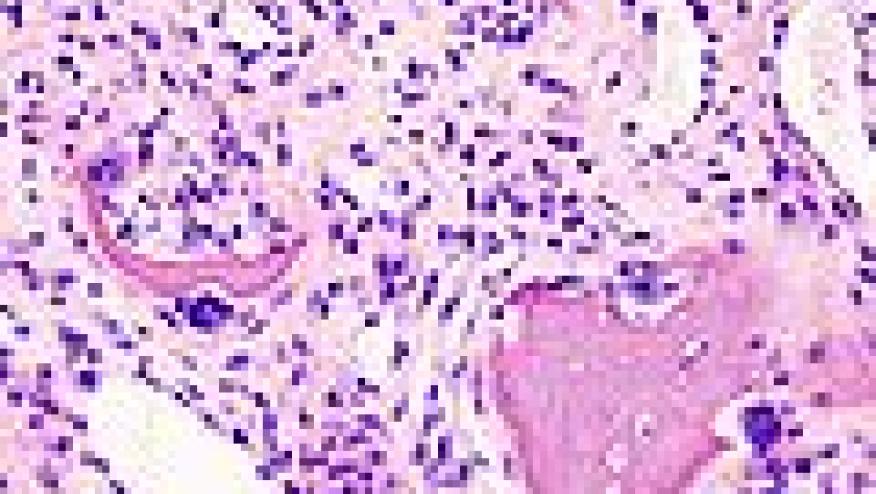Dendrimer Nanocarrier Delivers IGF-1 to Degenerative Cartilage Save

Researchers from MIT have developed a novel treatment for osteoarthritis (OA) by using dendrimer-based nanocarriers to deliver insulin-like growth factor 1 (IGF-1) to chondrocytes within joint cartilage and in animal models have shown when these nanocarriers injected into rat knees in models of OA, they reduced cartilage degeneration.
Dendrimers are repetitively branched molecules containing highly symmetric, spherical compounds. In these experiments the nanocarriers allow the dendrimer–IGF-1 to penetrate and be retained by full-thickness bovine cartilage ex vivo.
One of the challenges of delivering therapies (e.g., anabolic growth factors) to cartilage is that the tissue is that the chondrocytes reside deep within dense, anionic cartilage tissue. To overcome this biological barrier, they conjugated a IGF-1 (growth factor) to a cationic nanocarrier for targeted delivery to chondrocytes and retention within joint cartilage after direct intra-articular injection.
Amine terminal polyamidoamine (PAMAM) dendrimers were integrated with variable molar ratios of poly(ethylene glycol) (PEG) to control surface charge. Using variably PEGylated dendrimers, an optimal formulation showing 70% uptake into cartilage tissue and 100% cell viability was selected.
When conjugated to insulin-like growth factor 1 (IGF-1), the dendrimer penetrated bovine cartilage of human thickness within 2 days and enhanced therapeutic IGF-1 joint residence time in rat knees by 10-fold for up to 30 days.
Using a rat model of knee OA, a single injection of dendrimer–IGF-1 rescued cartilage and bone more effectively than free IGF-1. Dendrimer–IGF-1 reduced width of cartilage degeneration by 60% and volumetric osteophyte burden by 80% relative to untreated rats at 4 weeks after surgery.
These results suggest improve pharmacokinetics and efficacy of disease-modifying osteoarthritis drugs in the clinic.
This study shows that using that PEGylated PAMAM dendrimer nanocarriers with disease-modifying agents to target chondrocytes may be therapeutic in knee OA.










If you are a health practitioner, you may Login/Register to comment.
Due to the nature of these comment forums, only health practitioners are allowed to comment at this time.